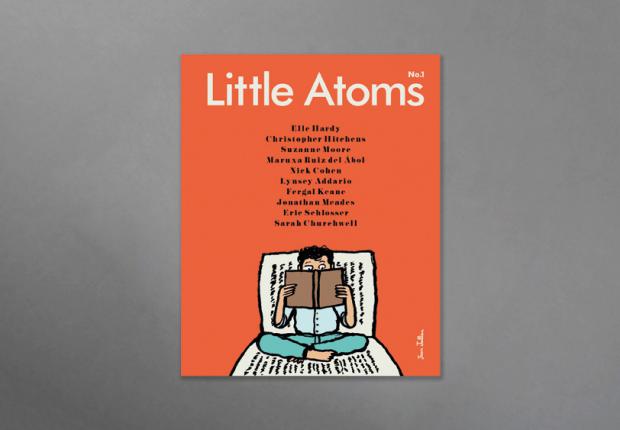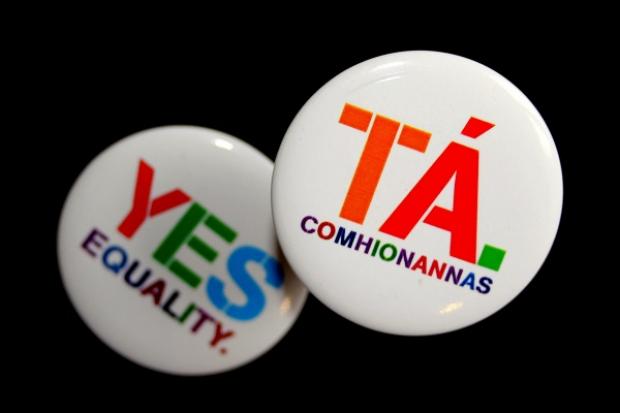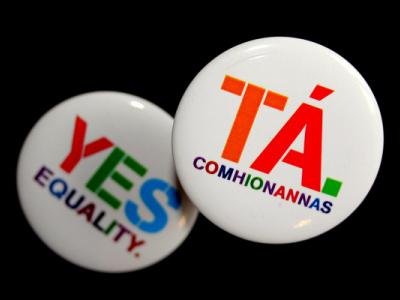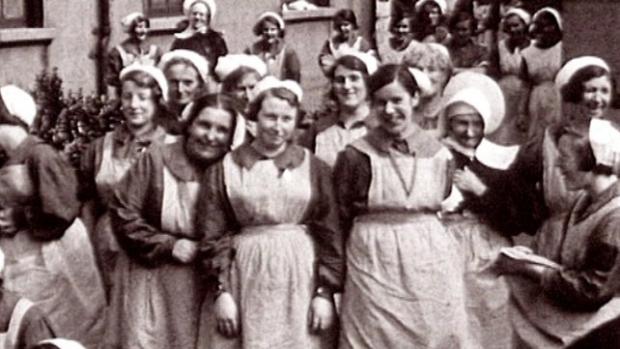Lyra McKee: We forgot that Northern Ireland could be a welcoming place
Editors’ note: Lyra McKee wrote this article for Little Atoms in 2017, but as can happen in journalism, the appropriate time never quite came to publish. We are publishing now, with the consent of Lyra’s family, on 31 March 2020 - what would have been Lyra’s 30th birthday.
This article was not meant to be an obituary. Instead, it was meant to be an ode to a time gone by, when we didn’t resent the refugees who turned up on our doorstep.
That was how it started, anyways. It was, in essence, research into our history of providing refuge.
It started with an interview of an Iraqi. I’d put out the request for people to speak to through Fidelma Carolan, a union official who was working with local churches and others to help welcome the refugees arriving in Belfast from the Middle East, often via the camp in Calais. Mahmoud, she said; he was from Mosul, in Iraq. He’d had a family member killed by ISIS and had had to flee himself because they’d wanted to kill him too. We arranged to meet in a cafe in South Belfast.
Mahmoud was one of those people it was impossible not to like. With dark chocolate-coloured eyes and curly brown hair, he’d have made any woman - or man - melt. I thought the local girls would have hounded him. When immigrants started to arrive in bigger numbers in Belfast, a few years after the signing of the Good Friday Agreement, young men with dark skin would often find themselves accosted down the street by young women enamoured with their exotic appearance. Once, a friend passed me on the road, breathless and terrified, with his half-Sri Lankan friend. They’d been spotted by a gaggle of teenage girls who had screamed upon seeing them and gave chase.
That was about 12 years ago now. Mahmoud was having a somewhat different experience. Our first lunch in the cafe in South Belfast turned into many subsequent lunches; we’d become friends. One day, he took out his phone and showed me a message he’d received on a dating site.
“Are u Muslim?” the speech bubble said.
“Yes,” he’d replied.
“Ok bye” came the reply.
I felt fury on his behalf. I wanted to grab the phone, screenshot the message, and send it to myself so I could tweet it. “Can anyone who knows ‘Emma’ tell her what a wanker she is?” Yet I knew any backlash that came from that would be directed at Mahmoud. It would blow up on alt-right Twitter and the white woman who’d sent the message would be pardoned for her bigotry.
During our first meeting, I asked Mahmoud about his family. His brother, an officer in the Iraqi army, had been killed in a car bomb; his other brother, a translator for the US Army, had been granted asylum in the US after receiving threats. Mahmoud and his father were left to face ISIS. Since they’d gotten one brother and couldn’t get the other, they set their sights on him.
“I can’t lose another son, Mahmoud,” his father had said. “You need to leave.” So he’d fled to a village, relying on his brother-in-law to smuggle him food. Eventually, he escaped again, this time making it to Calais and, eventually, Belfast. It had been around three years since he’d heard from his father. He did not know if he was dead or alive. From photos from friends on Facebook and news coverage on CNN, he could see that Mosul had been all but destroyed.
*****
Northern Ireland had not been untouched by the rising waves of xenophobia and resentment, directed at both immigrants and refugees. In one sickening attack, a young Polish couple had a brick thrown through an upstairs window. It landed on their baby’s cot.
It’s strange to think that in just one night of the Blitz, nearly 1,000 were killed in Belfast, and yet we hardly talk about it
My biggest fear for Mahmoud was the abuse he might have received and with every meeting, I inquired, “Has it happened yet?” According to him, it hadn’t. I wondered if his skin was pale enough that he could pass for white.
Yet despite its well-established relationship with sectarianism and bigotry, Northern Ireland - not yet a century old - has a long history of providing refugees with refuge. In one of its most humane acts as a young nation, it took in hundreds of Jewish children fleeing mainland Europe during the 1930s and ‘40s, via the Kindertransport.
The Kindertransport - German for “children’s transport” - was an effort to rescue Jewish children from countries like Germany, Austria, and Czechoslovakia. Many of those rescued were sent to a farm on the Northern Irish coast, in the village of Millisle.
From 1938 to 1948, according to estimates, the farm took in over 300, including adults. The community was kind; at the local primary school, each Jewish child was seated with a local to help them learn the language, according to author Marilyn Taylor who wrote a children’s book based on the story of the farm.
Others landed elsewhere in the UK before making their way to Northern Ireland.
“When I was working with Mo Mowlam, I had civil servants say to me one day, ‘Why didn’t you tell us about your Northern Ireland background’?’” said Alf Dubs, formerly an Under-Secretary of State at the Northern Ireland Office. “We spent two years in Cookstown after I arrived in London with the Kindertransport.”
Dubs' father was already in London and met him off the train in Liverpool Street. “My father had had a friend who owned a factory in Cookstown [about 75 minutes from Belfast] and he’d told my father if he ever got out of Czechoslovakia, he’d give him a job. Other family members had decided to take their chances and stay at home; they were later killed at Auschwitz.”
“Some children would shout at me, ‘You’re an evacuee!’ and I would say, ‘No, I’m a refugee!’ But people were on the whole friendly.’” he recalls. Dubs’ time in NI was cut short by tragedy; a year after arriving in Northern Ireland, his father died of a heart attack and his mother, in search of work, moved the family to England.
Around the corner from the farm in Millisle lived another Kindertransport refugee, Inge Radford. After arriving in the UK, she was raised in England before marrying and moving to Northern Ireland. According to her daughter, the purchase of the house in Millisle, just a lane or two away from the farm, had been a happy accident. Her mother, a human rights campaigner right up until her death in 2016, had only learned of its history later. “I was a refugee from Hitler’s Germany in 1939,” she’d told an interviewer at a racism rally in Belfast in 2014. “And I have been so well treated in England and Northern Ireland... and I just want that for everybody.”
*****
I wanted to know how the experience of the World War Two evacuees - those native to Northern Ireland and other parts of the UK who’d had to flee their homes - compared to that of Middle Eastern refugees like Mahmoud. With the youngest of them in their seventies, their generation was dying out and were increasingly hard to find, but I was in luck. I was friends with a local businesswoman, Rosemary Morrison, whose father and aunt had lost family during the bombing of Belfast by Hitler’s Luftwaffe in 1941, known as the Belfast Blitz. They were old enough to remember the Blitz and being evacuated from the city in the days after one attack.
We met in Belfast Castle, a structure that looked more like a house with turrets than a fortress. It sits on the lower slopes of Cave Hill, the mountain said to have inspired Gulliver’s Travels because, from a distance, it looks like a sleeping giant. That was how its summit got its nickname: Napoleon’s Nose.
Rosemary’s father, James Stitt-Johnston, and his sister, Lilian, had agreed to talk. I’d written a lot about The Troubles, Northern Ireland’s conflict, which had claimed 3000+ lives over a period of 30 years. It was strange to think that in just one night of the Blitz, nearly 1,000 had been killed, and yet we hardly talked about it.
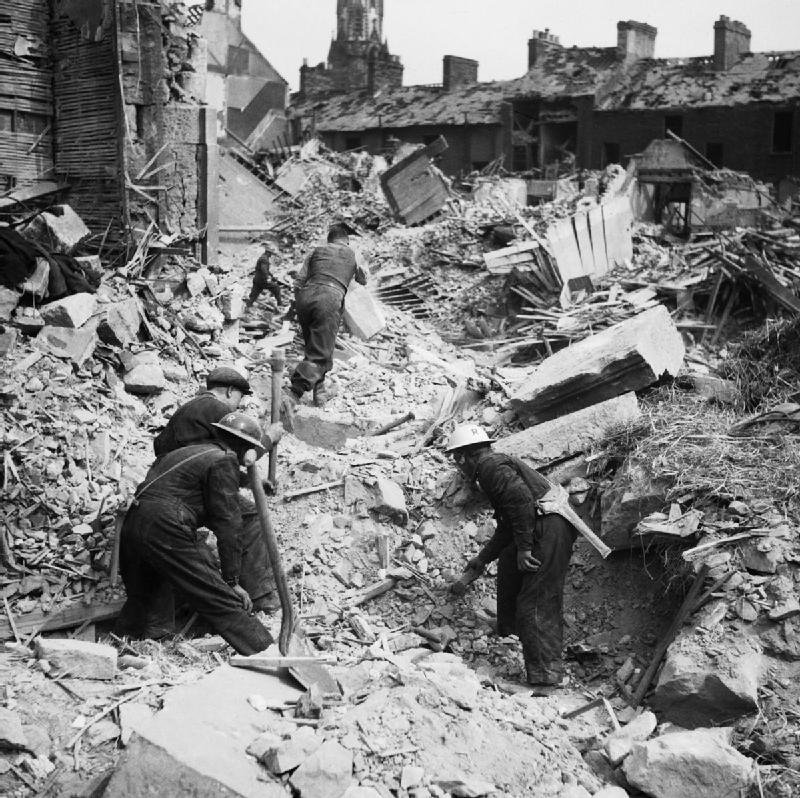
Clearing rubble after a Luftwaffe raid on Belfast: Imperial War Museums/Wikimedia
The Blitz had happened over a series of nights in 1941: on 7 April, there was a small attack designed to test the city’s defences. Then the major attack came on Easter Tuesday - 15 April - followed by one on 4 May.
James had brought a list of the dead with him. The Belfast Telegraph had printed an anniversary feature and with it, a list of those who’d perished. He’d marked names with asterisks: Uncle Joe, Aunty Violet, three young cousins, Granny Reid, and Alexander “Sandy” Carruthers, their neighbour and his childhood friend.
Judging by the list, it seemed the rest of Sandy’s family had survived. According to local lore, they’d hidden in a cupboard under the stairs where coal was stored. Sandy, presumably afraid of the dark, had refused to go in and had instead hidden under the table, where he’d been killed when the bombs had fallen.
During one attack, the bombs fell directly on their street. “My father says, “Come on. We’re getting out of here. Into the car, heading for the Cavehill,” said James. “[At Cavehill, we] got out and into the fields and hunkered in behind the hedges. I remember my father shouting, because it was a bright mooned night, you could have read without a light. It was the brightest moon you ever saw and there was this aircraft, across, a big Dornier and I could not imagine a plane that went so slow could stay airborne, but it did. My father was shouting, “Turn your face to the hedge,” because there may have been machine gun fire. We all turned our faces to the hedge and this plane hovered about for a while and then went away. If you looked down at Belfast, it looked as if the whole city was on fire.”
“Oh, it was terrible,” said Lilian.
“Do you remember that?” James asked.
“It will never leave my mind,” she replied. “It was just a sheet of fire, from one end of it to another.”
She was 80 years old yet she still remembered the sequence of events the night the Blitz killed their family. They’d been in Aunt Violet and Uncle Joe’s house and she, just four years old, was sleeping in Violet’s arms when the air raid sirens had gone off.
“Sure, leave her,” her mother had told her father as they’d left the house.
“No,” was the reply, “we’re taking her.” Her last memories of Aunt Violet was the silk blouse she’d been snuggling into and the smell of perfume.
“It’s a good night for a raid,” Uncle Joe had said. The moon was out and the night was bright. Over 75 years later, hearing what would have been some of his last words retold, it seemed prophetic, a case of tragic comic timing - a man predicting his own death with a euphemism, without realising it.
The Stitt-Johnstons’ house was crushed in that raid too. They’d survived because, again, they’d taken refuge up in Cave Hill. A few days later, in the seaside town on the coast which they’d fled to, their father delivered the news to their mother: most of her immediate family had been killed in the Blitz.
“My mother rarely smiled after [the Blitz],” Lilian said, later in the conversation. “I also remember she didn’t particularly like flowers, not really, Jim.”
“No, she didn’t,” he replied. “She took them back.”
“I said, ‘Why do you not like flowers?’ And she said, ‘Well, I remember standing up the Crumlin Road. I looked down and all I could see were flowers and flowers and flowers. I just thought about what it all meant.’ And she just went off flowers. Went off smiling, didn’t laugh a lot.”
After their home was crushed, they’d fled the city, to a cottage in the country which belonged to a family friend. It would be years before they owned a home again. The cottage had no running water or electricity. “A thatched hovel”, James called it. There was little room and nothing by way of luxury; their baby sister slept in a drawer.
I wondered what Mahmoud would have made of it, if it was better or worse than the house he’d hid in in Iraq.
“What is your take on the refugee crisis [happening right] now?” I asked.
“We learnt nothing,” spat James. “Two world wars, the first one was the war to finish all wars, 20 years later, less, another world war started - and we still have learnt nothing.”
I wished I could have introduced him and Lilian to Mahmoud. Their stories were so similar. They were generations and cultures apart but war had taken the same things from them: home and the people they loved.
Yet James was dying of terminal cancer. I was there to capture the last of his memories before he took them to the grave. Yet it didn’t seem to matter whether he took them to his grave or not. As he said, we’d already long forgotten the horror of what he and Lilian had seen.

